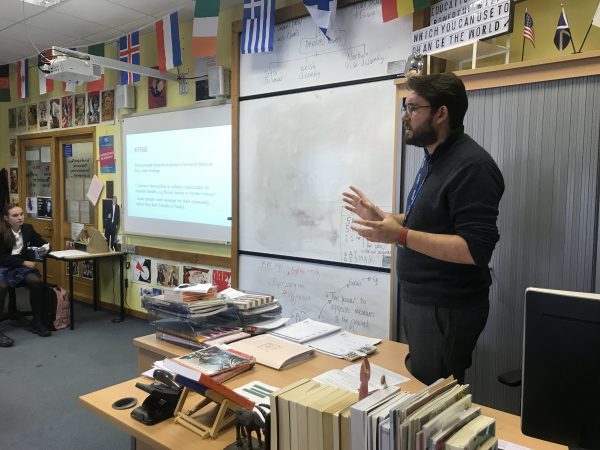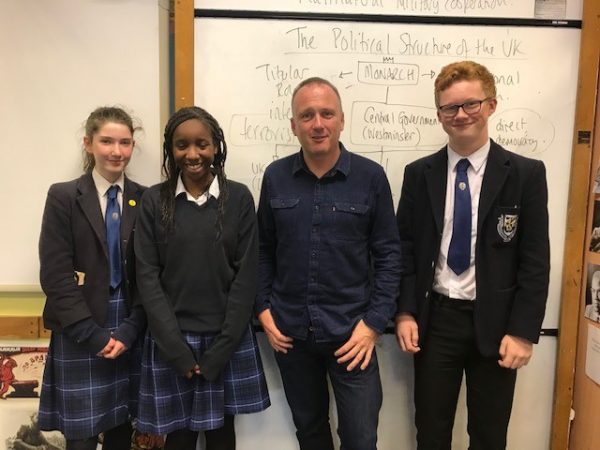In 2018 the World Economic Forum recommended the 7 must-have skills children should be learning in school to future-proof themselves and help build the future. These skills include written and oral communication, critical thinking and problem-solving, collaboration, adaptability, initiative and entrepreneurialism, an ability to access and analyse information and curiosity and imagination. In is undeniable that the world feels as though it is moving faster and that there is so much information through which children and adults alike have to sift for relevance and truth. With this in mind, the Politics and International Relations Society continues to invite sector leaders and experts from the worlds of broadcasting and journalism, notably, Martin Geissler (BBC news anchor and journalist) and Gordon Smart (former Editor of The Scottish Sun) politics (Luke Graham, former MP for Ochil and South Perthshire) and academia (Dr Nick Brooke from St Andrews University’s International Relations Department) among many others.
This term, members of the Society have engaged in discussions about the possible impact Brexit may have on the rise of national separatist terrorism in Northern Ireland and the inflammatory nature of parliamentary language. Interspersed between our external speakers, the weekly meetings involved discussions about current affairs. Pupils were encouraged to unpick a range of news stories of the day to try to identify the bigger picture behind them. Pupils looked critically at news reports surrounding US-Iranian relations, the Israeli electoral process, the international community’s responsibility for tackling climate change and improving sustainability, US-Sino relations and of course, Brexit. We ask important questions such as are free and fair elections still possible? How can ethics be built into Artificial Intelligence and is this important? Is national security more important than human rights? Is a two-state solution to the Israeli–Palestinian conflict a ‘just’ resolution? Why is the Russian Federation an ally of the Syrian Arab Republic? All of these questions develop learning agility and adaptability; when pupils ask ‘why’ and do this continually, they begin to develop skills of analysis which are so important for all types and level of study. When they are encouraged to explore new ideas and listen to views that may challenge their own, they grow as citizens. Reflection cultivates self-awareness and when one’s views are challenged, mindsets are disrupted and this fosters resilience.

While we cannot solve the world’s problems during a lunchtime session of the Society, we can encourage debate, improve confidence, listening and problem-solving skills and the construction of logical arguments as a starting point…and there does have to be a starting point that is best begun in youth. It is only by being curious about the world in which we live that our pupils can work towards becoming global citizens and productive members of society. By developing a passion for learning our members will develop and grow into responsible, alert citizens open to challenge and new ideas. New members from Forms I to Form VI are always welcome.


